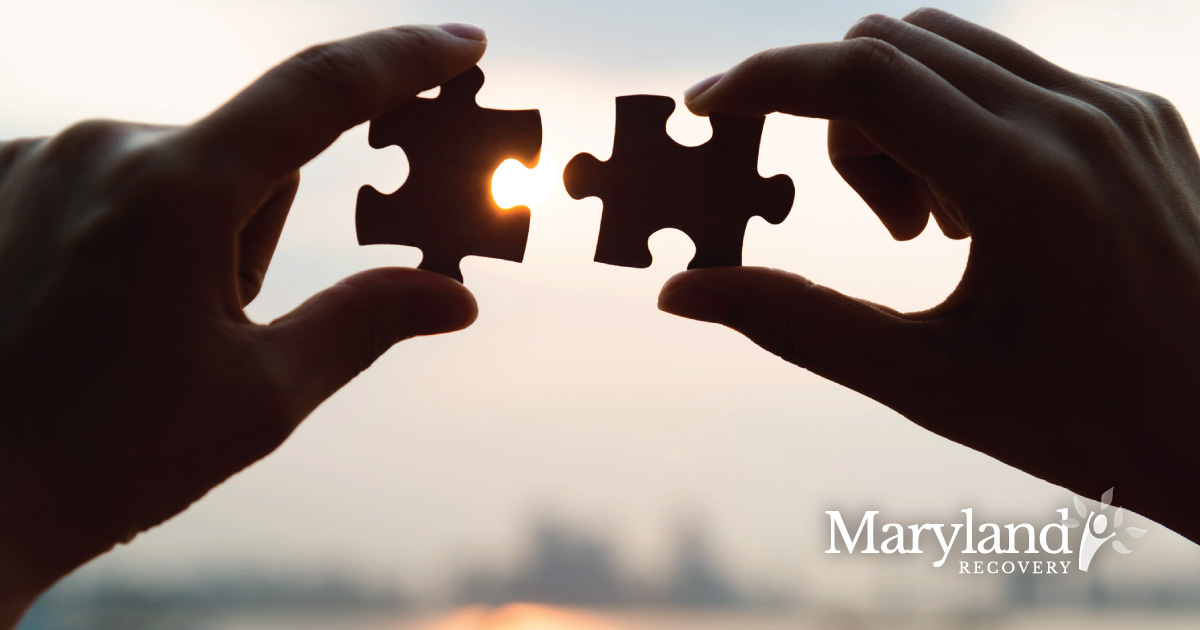Depression
Depression is a mood disorder. It can have serious symptoms that impact every aspect of an individual’s life. Suffering from depression can make it difficult to handle daily activities such as eating, going to work, exercising, or socializing. Types of depression vary, but can include major, chronic, manic, and persistent depression. Someone with depression may suffer weight gain, weight loss, lack of energy, low self-esteem, feelings of hopelessness, or suicidal thoughts.
Depression and addiction are common co-occurring disorders because people may turn to substances to cope with their depression. Like anxiety, however, drugs and alcohol can actually contribute to depression, making both situations worse. Stopping this destructive pattern takes treatment for both depression and addiction. The individual needs non-addictive treatment for depression as well as rehabilitation for the addiction.
Bipolar Disorder
Bipolar disorder is a manic-depressive condition that can cause abrupt shifts in mood. Bipolar disorders can involve moods of extreme highs (mania) and lows (depression). Severe mood swings can cause feelings of hopelessness, depression, and self-harm. Some of the symptoms of bipolar disorder include having extreme changes in mood, having a lot or very little energy, having trouble sleeping, talking or thinking quickly, feeling agitated, and thinking about death or suicide.
Bipolar disorder can affect a person’s physical and emotional well being. Addiction is similar. This co-occurring disorder is a common dual diagnosis. Emotional instability that comes with bipolar disorder can feed an addiction, and vice versa. Being bipolar can make addiction treatment and recovery more difficult. A dual diagnosis treatment center can create plans specifically for people with bipolar disorder.
Trauma And Post-Traumatic Stress Disorder (PTSD)
Experiencing a personal trauma is a common reason for an addiction to begin. Living through traumatic events can lead to emotional strife and post-traumatic stress disorder (PTSD). PTSD can involve depression, anxiety, flashbacks, nightmares, and mood swings. A trauma could push someone into substance use as a way to feel numb or to run away from feelings. Self-medicating after a severe trauma can easily lead to an addiction.
Someone with trauma-related issues needs to seek therapy to work through these underlying problems. Only by resolving PTSD can one hope to achieve long-term recovery from a drug addiction or alcoholism. Trauma disorders require treatments such as non-addictive medications and meetings with therapists, either before or during addiction recovery.
Schizophrenia
Schizophrenia is a mental disorder that typically lasts for life. It is a separation between thought, emotion, and behavior. This leads to inappropriate outbursts, actions, and feelings, as well as separation from reality and false perceptions. Someone with schizophrenia may suffer withdrawal from reality, fantasy, delusion, and mental fragmentation. Symptoms can include hearing voices, hallucinating, an inability to express emotions, disorganized speech or thoughts, and impaired cognition.
Someone with schizophrenia may try to use substances to self-medicate for feelings of depression or anxiety. The co-occurring disorders of schizophrenia and addiction can be a dangerous combination. Feeding a brain disorder with a substance abuse problem can make symptoms more severe. Dual diagnosis treatments in these cases often involve medication, addiction counseling, and psychotherapy.
Antisocial Personality Disorders
Antisocial personality disorder, or sociopathy, is a mental disease. Someone with this disorder cannot differentiate between right and wrong. They may be difficult to get along with, as they ignore the feelings of others and can treat people with indifference. Antisocial personality disorder can cause a person to feel no guilt or remorse – often feeding an addiction in co-occurring disorder situations.
Someone with an addiction and antisocial personality disorder may not feel any shame for his or her substance abuse. They may behave impulsively or violently and struggle to keep up with school or work. Treatment for this dual diagnosis can take extensive inpatient and outpatient addiction recovery programs, as well as therapies and medications to control the symptoms of the brain disorder. Antisocial personality disorder is difficult to treat, but identifying early can improve outcomes.
The Importance Of Dual Diagnosis Treatment
Treatment for addiction must address the whole person. It can be difficult to know which came first – the addiction or the mental health problem. Either way, specialists have to treat both problems, and coordinate between both types of treatments. Ignoring either the addiction or the mental health issue will not enable the individual to move past both issues. This can lead to a relapse because the person still suffers from his or her mental health problems.
It often takes a mix of doctors, psychologists, psychiatrists, and addiction professionals to treat someone with co-occurring disorders. Treatment plans may involve medications for symptoms of the mental health disorder, cognitive behavioral therapy, and addiction rehabilitation programs. It is important for an individual to seek dual diagnosis treatment if he or she suffers from co-occurring disorders. Well-rounded treatment is the only way to achieve long-term addiction recovery.
Dual diagnosis treatment can specifically address the mental illness, not only the addiction. Patients can work with professionals who can offer clear diagnoses and understand the scope of individual needs. A dual diagnosis treatment center can use in-depth mental assessments from psychiatrists, low-abuse risk medications, and a number of proven tools and techniques to help patients gain control over their mental illnesses and fight addiction for good. Finding dual diagnosis treatment is a necessity if you have an addiction and a co-occurring mental health disorder.









